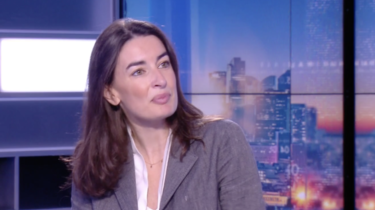In her editorial for this Friday, February 18, Agnès Verdier-Molinié, director of the IFRAP foundation, discusses the flaws that weaken National Education.
The President of the Republic will arrive in the campaign with very disruptive proposals on education. Autonomy of school principals, micro-colleges or micro-high schools, increase in teachers’ salaries against more presence in class, abolition of CAPES, end of teachers’ lifetime employment. If that’s really what’s in the program, it’s heavy.
We find there a little what he had already mentioned in Marseille in September, with these 50 “laboratory” schools, where he explained that the parents of pupils tell him; in such a place, the teachers no longer come… tired of working too long in difficult neighborhoods.
The teachers are tired and the reality is very worrying. Indeed, out of 713,000 participants in the 2018 JDC, 1 in 20 young people is illiterate in France and 1 in 10 young people has reading difficulties.
The end of national education
We can say that National Education has shown its limits very clearly during the health crisis.
Distance courses were very chaotic in the public sector, while the private sector adapted better. In the end, 5% of public teachers, or 40,000, did not contact their students during confinement. We don’t really know why, illness, absenteeism, computer difficulty? There was no investigation or sanctions.
Added to this are the poor results of the public compared to the private beyond the health crisis.
France poorly ranked in the PISA rankings
France is 23rd out of 82 in reading, 25th out of 82 in mathematics and science. It’s really not terrible. But in reality, when we look in more detail, there is good and bad in our education system.
According to the 2019 national assessments, public CM1 students (excluding priority education) mastered French at 75.5% compared to 89.4% in the private sector. Regarding mathematics, public CM1 students had a satisfactory mastery rate of 73.1%, while this represents 85.9% in the private sector.
It is necessary to diversify and reinforce the offer of private education on the territory. The future of students and the improvement of results are at stake. It’s about time we realized that.
Leaving the statute, hiring under contract, allowing principals to choose their teaching teams and remunerate them according to their involvement, all this would go in the right direction. But we must not forget the essential: manage education at local level and no longer hire teachers at state level… as is happening in so many European countries and blow up this completely obsolete rule of the 80/20 which wants that only 20% of an age group can go to study in private education.
This rule which is not in the law elsewhere and makes no sense. This deprives our young students of a better education (moreover less expensive for the community). Freedom of choice for school instead of being assigned to an establishment, leaving the national education model can only work better.

